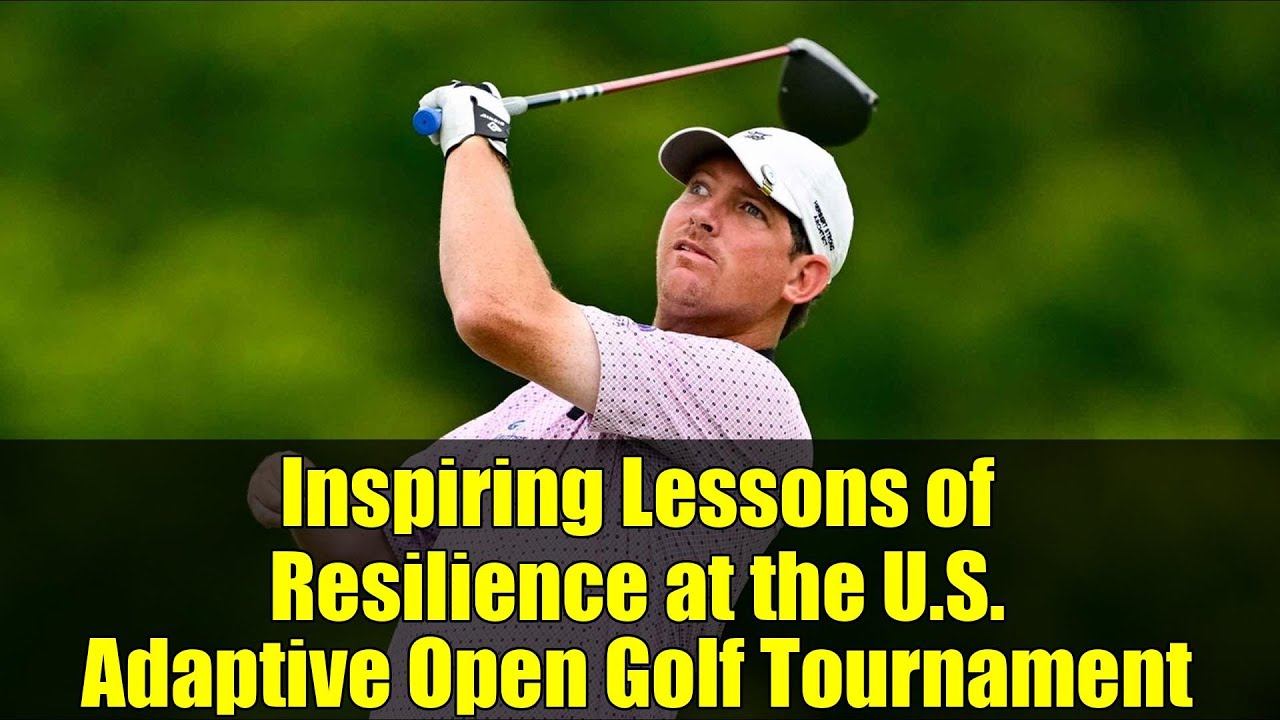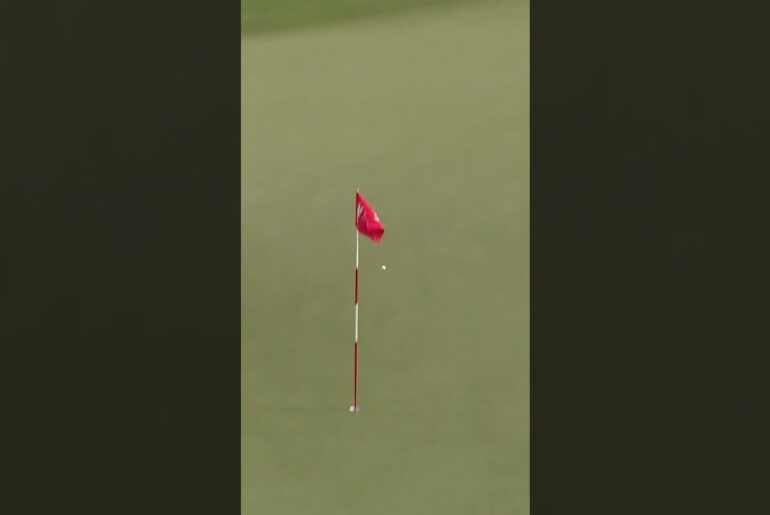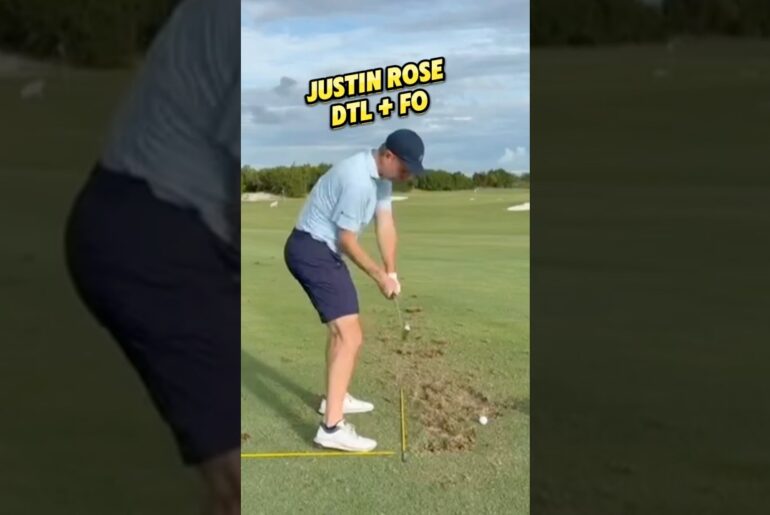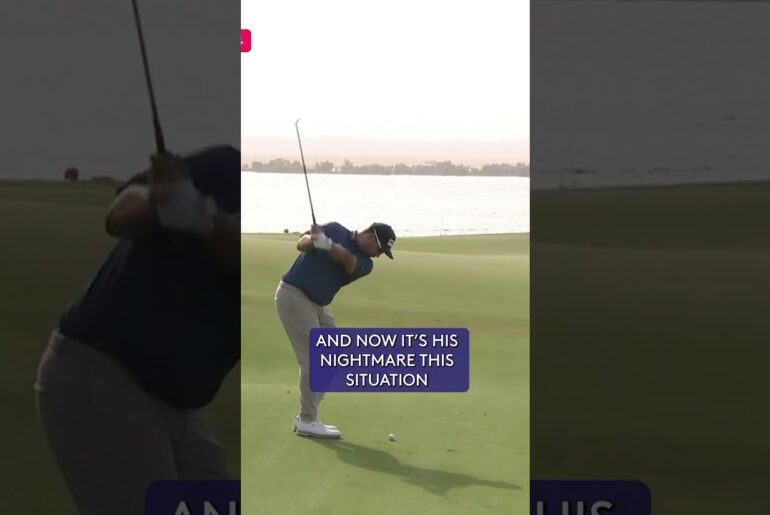00:00 – Intro
00:24 – Inspiring Lessons of Resilience at the U.S. Adaptive Open Golf Tournament
03:49 – Kipp Popert SMASHES Record with 61 at U.S. Adaptive Open | Defending Champion Leads by 6
06:23 – Born Without an Arm, Andrew Austen Inspires Athletes with Disabilities Through Golf
10:11 – Inspiring Golfer Overcomes Disability: Ford Martin’s Journey to the U.S. Adaptive Open
1. Inspiring Lessons of Resilience at the U.S. Adaptive Open Golf Tournament
Discover the inspiring stories of resilience and determination at the 2025 U.S. Adaptive Open at Woodmont Country Club. This tournament showcases golfers overcoming disabilities and adversity, demonstrating incredible skill and perseverance. Learn about Vince Biser, a one-armed golfer with cerebral palsy, and Ryder Barr, a young athlete who overcame paralysis to excel in golf. Featuring record-breaking scores and powerful stories of service members and veterans, this event highlights the true spirit of adaptive golf. Watch the full video for inspiring insights on perspective, resilience, and the transformative power of sport.
2. Kipp Popert SMASHES Record with 61 at U.S. Adaptive Open | Defending Champion Leads by 6
Two-time defending champion Kipp Popert fires an UNPRECEDENTED 11-under 61 in Round 1 of the 2025 U.S. Adaptive Open at Woodmont Country Club. Despite recent toe fusion surgery that threatened his tournament participation, Popert’s blistering round – featuring two eagles and eight birdies – shattered his own championship scoring record and established a new course benchmark.
The 27-year-old English golfer, who competes in the Coordination Impairment category due to cerebral palsy, now holds a commanding six-shot lead as he pursues an unprecedented third consecutive title. Discover how Popert overcame pain management challenges after abandoning his practice round early, and learn about his inspiring journey through multiple lower-body surgeries.
Key highlights:
– Historic front-nine 29 with two eagles
– Overcoming post-surgery recovery barriers
– Path to potential three-peat championship victory
– Analysis of Woodmont Country Club’s South Course strategy
#Golf #AdaptiveSports #KippPopert #USAdaptiveOpen #GolfRecord #DisabledAthlete #TournamentGolf #GolfChampionship #InspiringSports #donaldtrump
3. Born Without an Arm, Andrew Austen Inspires Athletes with Disabilities Through Golf
Meet Andrew Austen, a golfer born without his right forearm who uses his platform to inspire others with disabilities. Despite challenges, he thrives in sports, proving that limitations don’t define potential. From adaptive golf tournaments to social media advocacy, Austen shares his journey of resilience and empowerment. Learn how he turns adversity into opportunity and connects with others through golf. Explore his story of overcoming stereotypes and finding purpose in every challenge.
4. Inspiring Golfer Overcomes Disability: Ford Martin’s Journey to the U.S. Adaptive Open
Witness the incredible story of Ford Martin, a golfer who defied doctors’ predictions. Despite being born with bilateral neurogenic clubfoot, Martin excelled in sports, becoming a lacrosse goalie and later a starter for Georgetown Prep. Join us as we follow his journey to the U.S. Adaptive Open, where he tied for fifth last year. Discover how his resilience and support from family and friends helped him overcome challenges and achieve success on the golf course. This video showcases the power of determination and the beauty of adaptive sports.
One, inspiring lessons of resilience at the US Adaptive Open Golf Tournament. Two, Kip Popard smashes record with 61 at US Adaptive Open defending champion leads by six. Three, born without an arm. Andrew Austin inspires athletes with disabilities through golf. Four. Inspiring golfer overcomes disability. Ford Martin’s journey to the US Adaptive Open. One, inspiring lessons of resilience at the US Adaptive Open Golf Tournament. Resilience isn’t just a buzzword. It’s a lived reality for athletes rewriting the rules of possibility. This week at Woodmont Country Club in Rockville, Maryland, the US Adaptive Open isn’t merely hosting a golf tournament. It’s staging a masterclass in human determination that challenges everything we assume about limitations. But here’s where perspective shifts. While golf is famously a game of bouncing back from bad shots, the 96 competitors at this groundbreaking event redefine resilience itself. Now in its fourth year, the championship showcases athletes from 10 countries aged 16 to 75, who’ve turned staggering physical challenges into vehicles for excellence. Their swings, each uniquely adapted to their bodies, aren’t just techniques. Their testaments to ingenuity. Take Vince Biser, a 37year-old whose story could fill a medical textbook. Born with cerebral palsy after a prenatal stroke paralyzed his right side. Biser endured childhood epilepsy so severe he chose a hemispherectomy at 16. A rare brain surgery disconnecting his brain hemispheres. “It was a miracle,” says his father, Andy. “It gave Vince his life back.” Now a seventime champion in one golf, Viser plays with a three handicap using only his left hand. But here’s the twist. He’s competing this week in the coordination impairment category. a classification his family argues doesn’t account for his single arm reality. We’ve petitioned for change, Andy admits. But Vince just loves being here. This tension between fair competition and inclusive spirit reveals the complex dance of categorizing disabilities in adaptive sports. Meanwhile, 16-year-old Ryder Bar, the youngest competitor, embodies relentless optimism. After a childhood virus paralyzed his right arm, he told his parents, “I’ll figure it out.” Now he jokes with spectators while blasting bunker shots, his mother, Megan marveling, “That kid could make friends with a tree.” Nearby, Marine veteran Nick Kimmel, who lost three limbs in Afghanistan, plays with his toddler napping in a stroller. His wife Tracy shares how Kimmel visited fallen comrades at Arlington Cemetery before teeing off. He’ll say, “I’ve got friends who didn’t make it home. How can I complain? What makes this event truly radical? It’s not just the record-breaking 61 shot by England’s Kip Popert or the nine players finishing underpar. It’s the unspoken lesson. Every swing here carries dual weight, the hunger to win, and the gratitude to play it all. Spectators leave questioning their own definitions of disability, while players trade strategies on adaptive grips and prosthetic techniques. But here’s where it gets controversial. Can any scoring system truly level the field when disabilities vary so wildly? Should athletes like Baiser advocate harder for category changes or embrace the events unifying spirit? And when we watch these players, are we witnessing sport or something deeper? As rain drizzled over Monday’s round, the real forecast was clear. This isn’t just golf. It’s a living manifesto on perseverance. So tell us, does this change how you view overcoming obstacles? Should adaptive sports prioritize competitive fairness or communal celebration? Sound off below. Your take might surprise you. Two. Kip Poprid smashes record with 61 at US Adaptive Open defending champion leads by six. Imagine shooting a record-breaking 61 in a major golf tournament, leaving the competition in the dust with a whopping six-shot lead. This is exactly what England’s Kip Popert achieved on Monday at the US Adaptive Open, shattering his own record in setting the stage for a potential historic three repeat. But here’s where it gets even more remarkable. Popert has cerebral pausy and competes in the coordination impairment category, making his accomplishments all the more impressive. And this is the part most people miss. He’s done all this after undergoing toe fusion surgery just a few months ago, which had him questioning whether he’d even be able to defend his title. As Pulpert himself said, “I love the pressure. It means you’re doing something good if you’ve got pressure. I’ve had a lot of months of boredom this year, so give me all of it.” This mindset is a testament to his determination and skill, which were on full display as he made two eagles, eight birdies, and just one bogey on the round, including a stunning front 929. But what’s truly inspiring is that Popert has been dealing with the challenges of his condition his whole life, having undergone multiple surgeries to relieve pain in his legs and feet. Despite these obstacles, he’s risen to the top of his sport. And his latest performance has him poised to become the first player to ever win the US Adaptive Open three times in a row. Of course, this raises an interesting question. Should we be surprised that someone with a disability can achieve such greatness in sports? The answer of course is no. But it’s a topic that’s still worth discussing. As we watch Pulpit continue to dominate on the course, we have to ask, what other barriers can we break down to create more opportunities for athletes with disabilities? And how can we work to create a more inclusive sports culture that celebrates athletes of all abilities? The fact that Pulpert was unsure if he’d be able to play just a day before the tournament due to pain from his surgery makes his achievement all the more astonishing. As he prepares to begin his second round, the question on everyone’s mind is, can he keep up this incredible pace and make history once again? One thing is certain we can’t wait to find out. With the field of 73 male players set to be cut to the top 20 and ties after the second round, the competition is sure to heat up. But for now, Pulpert is firmly in the lead and his story is an inspiration to us all. So, what do you think? Can Popert pull off the three repeat? And what does his story mean for the future of adaptive sports? Three. Born without an arm, Andrew Austin inspires athletes with disabilities through golf. Imagine a world where your physical limitations define your capabilities. But one man, Andrew Austin, is rewriting that narrative. Born without his right forearm and hand, Andrew has turned adversity into inspiration, proving that disability is not a barrier to achieving greatness in sports. Growing up in Rner, Andrew’s passion for sports was a constant thread in his life, connecting him with his four siblings and fueling his competitive spirit. Whether it was soccer, basketball, baseball, or golf, he excelled in every game he played. His determination was palpable. If someone doubted his abilities, he would work harder to prove them wrong. Andrew’s journey in golf began after he graduated from the College of Charleston in 2020 with a degree in business administration. Despite his physical challenge, he rediscovered his love for the sport, honing his skills at the city of Charleston Municipal Golf Course. Today, he stands as the eighth ranked adaptive golfer in the nation in the G5 classification, a testament to his resilience and skill. On Monday, Andrew will compete in the fourth annual US Adaptive Open, often referred to as the holy grail for adaptive golfers. This prestigious event brings together some of the world’s best golfers with disabilities, and Andrew is thrilled to join them on the green. While he’s participated in 10 other adaptive tournaments, it’s the connections he makes that truly resonate with him. The best part of these events is meeting new people, Andrew says. It helps me find comfort in my own skin and reinforces my purpose to inspire others. Andrew’s journey extends beyond the golf course. Since 2020, he has shared his experiences on social media, building a community of supporters on platforms like Instagram and Tik Tok. His videos showcase his golfing prowess in his daily life, including the challenges and triumphs of using a prosthetic. With over 13,700 followers on Instagram and 18,500 on Tik Tok, Andrews reaches significant. He adopted the nickname Jimikiad in college, which has become his social media alter ego. Andrew believes that embracing his story, even the challenging parts, is crucial for growth and connection. He often shares humorous anecdotes about his experiences, demonstrating that laughter can be a powerful tool in overcoming obstacles. Throughout his life, Andrew has encountered staires and assumptions, but he remains confident and grounded. He credits his parents for instilling a sense of normaly in him from a young age. When doctors informed his parents about his condition, they were advised, “If you don’t have a problem with it, he won’t have a problem with it either.” This approach shaped Andrew’s perspective, teaching him that his disability did not define him. One pivotal moment in Andrews athletic journey occurred in 8th grade when he tried out for the boys basketball team, but didn’t make it. Initially devastated, he embraced the opportunity to become the team manager, eventually earning a spot on the starting five. This experience taught him a valuable lesson. Success comes from perseverance and believing in oneself. Andrew’s message is clear. Don’t let others define your limits. He encourages everyone facing similar challenges to remember that trying is the first step towards achieving greatness. As he prepares for the US Adaptive Open, Andrew remains focused on his mission, inspiring others to believe in their own potential. But here’s where it gets controversial. How can society better support individuals with disabilities in sports? What role should adaptive sports play in promoting inclusivity and equality? These are questions worth exploring and discussing. Share your thoughts in the comments below. For inspiring golfer overcomes disability, Ford Martin’s journey to the US Adaptive Open. Imagine being told as a baby that you’d probably struggle just to walk. Yet, here you are stepping up to the tea with confidence and skill. That’s the incredible story of Ford Martin at the US Adaptive Open. It’s a tale of sheer determination that hooks you right in, showing how one person’s passion can turn medical predictions upside down. Ford, a familiar face in Maryland’s golf scene, kicked off this year’s event with a drive that had everyone cheering. But the real drama unfolded as he navigated the challenging course in his own unique set of circumstances. Ford Martin, now 32, grew up in PTOAC, just a stones throw from the Woodmont Country Club where he teed off on Monday. As the first player to start in this fourth edition of the US Golf Association’s Championship for Athletes with Disabilities, he had the home crowd behind him, including family and friends who know his journey well. The South Course didn’t make it easy, though, with only nine out of 96 competitors finishing under par in the opening round. It was a tough test. Ford ended up with a five over par 77, which might sound disappointing compared to the leader Kip Pulpit’s stunning 11 under 61, but he stayed positive. He emphasized the importance of patience and aiming for a strong score in the next round to make the cut, and he did just that, shooting an even par 72 on Tuesday to advance. Heading into the third round, Ford is tied for third in the coordination impairment category. This category is one of eight for men in the tournament. Each tailored to different types of disabilities like upper limb issues, lower limb challenges, multiple amputations, intellectual disabilities, short stature, seated play, and vision impairments. The top performers from each group move on to the final round, giving everyone a fair shot based on their specific abilities. For beginners, think of it like different divisions in sports. It’s all about leveling the playing field so athletes can compete on equal terms, highlighting how adaptive sports adapt rules and equipment to make participation possible and exciting. Ford’s story is deeply rooted in his early life. Born with a condition called bilateral neurogenic club foot, where both feet are twisted inward due to nerve- rellated issues affecting about one in 1,000 babies, according to sources like the Mayo Clinic, he was told by doctors that even walking might be a major challenge, let alone running or playing sports. But that didn’t hold him back. Growing up in a big family with six siblings, especially his brothers who were into lacrosse, Ford dove into athletics early on. He started as a goalie and became so good that by his sophomore year at Georgetown Prep, he was a starter. His perseverance paid off with 43 straight starts for the team, culminating in a thrilling 7 to6 overtime win in the Interstate Athletic Conference Championship back in 2011. In recognition of his grit, the school created the Ford Martin award, which he hands out each year to a senior lacrosse player who embodies the same spirit. And this is the part most people miss. While Ford’s success is inspiring, it often comes down to the support system around him. On the course that Monday, he had former teammates cheering him on, some even wearing hats with his signature mustache printed on them, and cousins who were in town for a family event. Ford credits his siblings for teaching him resilience. They’d push him to keep up on walks and not cuddle him, which helped him learn to bounce back quickly from falls and failures. But here’s where it gets controversial. Some might argue that stories like Fords put too much emphasis on individual triumph, potentially overlooking the broader challenges like access to adaptive equipment or societal barriers that not everyone can overcome as easily. What do you think? Does this focus on personal strength sometimes gloss over systemic issues? Ford isn’t alone in his remarkable journey. Many competitors in the US Adaptive Open have similar tales of adversity. Take Kim Moore for example, who’s currently second in the women’s standings. A 44year-old PGA teaching pro from Michigan, she was born with a severely deformed left foot and spobipida, and she lacks a right foot entirely. Despite this, she won the very first US Adaptive Open in 2022, showing how experience and skill can shine through. Then there’s Amanda Kuna, a 21-year-old from Hawaii who faced sudden vision loss from labor’s hereditary optic neuropathy, a rare genetic disorder that can rob someone of their sight in just months. Now legally blind, she’s on track for her fourth straight win in the vision impairment category, using adaptive tools like audio cues to navigate the course. And don’t forget Mike Brown, a 47year-old Englishman who’s taken home the lower limb impairment title for the last two years. After serving in the British Army, he chose to amputate his left leg following numerous surgeries from an injury. And he’s now competing at a high level, ranking fifth overall among the men. As David Dorne, the director of Golf at Woodmont, put it, “Watching these athletes can really put things in perspective. How do you complain about a missed putt when you’ve seen what they’re up against?” The US Adaptive Open returning to Woodmont next year isn’t just about golf. It’s about celebrating human spirit and resilience. But let’s stir the pot a bit. While these stories are uplifting, some might question whether events like this get enough mainstream attention or funding compared to able-bodied sports. Do you agree that adaptive athletics deserve more spotlight, or is there a risk of tokenism and how we celebrate these achievements? We’d love to hear your thoughts in the comments. Share how stories like Fords affect you, or if you have your own experiences to add.







